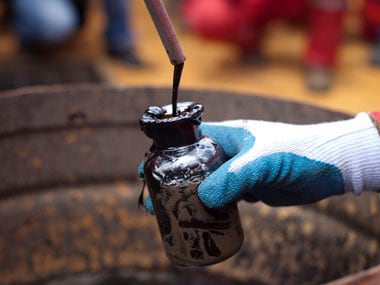New Delhi: State refiners are close to signing their first annual deals to buy Russian oil, three sources privy to the development said, as the nation moves to tap new sources to hedge against geopolitical risks. India, the world’s third-biggest oil consumer and importer, which ships in over 80 percent of its needs, usually relies on the Middle East for the majority of its supply. However, its imports from that region slid to a four-year low last year. Its acquisitions from Russia had typically been low, as transportation costs for its crude tend to be higher than those for Middle Eastern grades, and were made through the spot market rather than under contract. However state refiners—Indian Oil Corp, Hindustan Petroleum Corp Ltd and Bharat Petroleum Corp Ltd—are now moving towards signing deals for Russian oil. The country’s top refiner IOC has already told Russia’s Rosneft that it intends to buy as much as 40,000 bpd of Russian crude, one of the sources said, some 2.5 percent.% of its total refining capacity. “It is almost certain to sign a contract, a proposal has been sent to Rosneft,” the source said. “These are optional volumes. (IOC) will see the pricing then will decide when to draw the volumes.” “IOC will take Russian oil whenever it is economical.” [caption id=“attachment_2812220” align=“alignleft” width=“380”]  Representational image. Reuters[/caption] Bharat Petroleum (BPCL) and Hindustan Petroleum (HPCL) are also planning smaller deals, sources said. “We have the capabilities to process Russian oil. We are evaluating procuring Russian crude directly from the producers,” said R Ramachandran, head of refineries at BPCL. BPCL currently buys Urals from traders. “We will be interested in Russian crudes if the price is right,” he said. BPCL plans to raise its crude processing in 2020/21 by 1 million tonnes as operations at its Kochi and Bina refineries stabilise after an upgrade. “There is some Russian crude in our basket,” HPCL Chairman MK Surana said. “We will consider buying Russian oil on techno-economic considerations.” Neither Rosneft nor the other Indian refiners named responded to Reuters’ emails seeking comments. Under Prime Minister Narendra Modi’s leadership since 2014, India has overhauled its crude import rules to give state refiners more flexibility to buy oil swiftly from varied regions, taking advantage of price differences between them. The source said pricing of the crude will be linked to a ‘complex’ formula, with reference to Brent and freight among other elements.
India, the world’s third-biggest oil consumer and importer, which ships in over 80 percent of its needs, usually relies on the Middle East for the majority of its supply
Advertisement
End of Article


)
)
)
)
)
)
)
)
)



